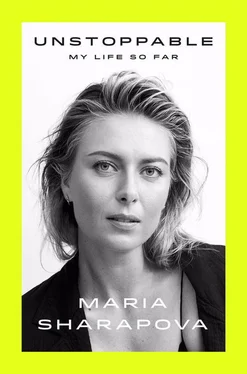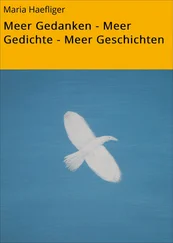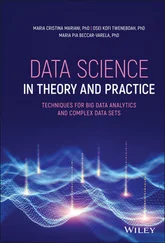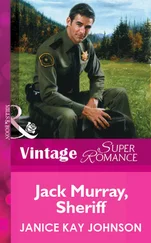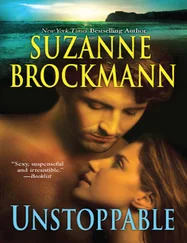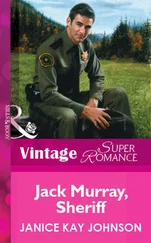Nick asked to see my father. The translator came along. An offer was made. I was still too young to live at the academy—you had to be at least ten years old—but I could train there. I would have practice all day, every day. No fee. A kind of scholarship. I could eat lunch and dinner in the mess hall. Yuri could eat there, too. They’d even find us a place to stay. For a moment, the future seemed assured.
We lived about a five-minute drive from the academy in the apartment of a middle-aged Russian woman. It had been arranged by the translator. We paid $250 a month for the use of the kitchen and bathroom, as well as the living room, giving us access to the television, which was important. That’s how I learned to speak English, by watching TV. I learned more from Barney the dinosaur than I ever did in school. Our lives were mixed up with that landlord, who I think had a problem with me. One minute, she’d be giving me coloring books and presents, the next she’d be threatening to evict us to make room for a better-paying tenant. She advised us, translated for us, and schemed against us. It was up and down. From that time in my life, I learned that it’s possible to at once love someone, hate them, and be indifferent to them.
The apartment was the kind you see in ’80s movies about families down on their luck, single mothers, and runaways. When I think of it now, I am sometimes not sure if it’s that little complex in Bradenton I’m remembering or the apartment where Daniel lived with his mother in The Karate Kid , one of my favorite movies and another great teacher of English. It was two stories, in the motel style, with a courtyard behind it and doors that opened onto an exterior hallway. It was small and dark inside, with windows that looked out on a road lined with palm trees. My father and I shared the living room couch, a fold-out double bed that sagged in the middle. You had to keep your balance even in your sleep. That bed might explain the back problems that have plagued Yuri ever since. Was it strange to share a bed with my father, to be sleeping side by side like an old married couple? No. It was my life and it was good. No matter how hard things got, I always knew I had him, right there, fighting for me day and night.
We settled into a routine—there wasn’t a lazy day for either of us. We were up each morning before sunrise, creeping here and there so as not to wake the old lady. My father did not need an alarm. He simply set his internal clock to the witching hour. Five a.m. He got out of bed, slipped on his shoes, and was ready to go. We ate breakfast in the dark, talking over the goals for that day. What part of my game should I be working on? Where were my thoughts? Then we went to the academy. Yuri would walk me the quarter mile or so to the front gate. It took about twenty-five minutes. As we went, the sun came up. Later on, we had a bike. Yuri pedaled, and I rode behind him. Once we were pulled over by the police because I was riding without a helmet—it seemed funny to my father, who was living a hundred miles from Chernobyl when the reactor blew up.
I was on the court by 6:30, hitting balls. Then we broke into groups for drills and lessons. You were always doing something. That was Nick’s philosophy. If you were not hitting balls, you were retrieving. If you were not hitting or retrieving, you were in line, moving your feet, awaiting your turn on the baseline. At first, they put me in a group of six to eight girls. We worked together all morning, and for me this was great. It gave me a chance to really get to know these people. In many cases, these would be the girls I’d go up against my entire career—people I still play now, though we’ve gotten old, at least by the standards of tennis. They were from all over the world. Some were good. Some were very good. Some were great. But most were not good at all. These players, the ones who really made the academy profitable, were there because their parents could not face reality. Even the very good ones would never be good enough—even I could see that. In this world, the gap between very good and great is the Grand Canyon.
Most of these girls were spoiled brats. You could tell they didn’t want to be there. You knew after two minutes that they couldn’t really play. No coordination. Couldn’t tell the left foot from the right hand. And they couldn’t stick with anything or focus. Maybe that’s why they sulked and threw tantrums. That’s the way a lot of the kids at Bollettieri’s behaved, and it turned me off. I remember seeing photographs taken at the end of a big junior tournament. They showed the winners next to the runners-up. Without even looking at who had the trophies, you knew right away the winners from the losers. I decided right then that you’d never be able to tell if I’d won or lost by looking at a picture.
At 12:30, we broke for lunch. Why does every cafeteria have to be so bad? That was the first time I’d seen food delivered by conveyor belt. I closed my eyes and got it down. I knew that our bank balance depended on my eating as much as I could at the academy.
In the afternoon, we went back out and played matches. These started at 1:30 and went till 5:00 or so. That was the best time. It was when you could really see who was who and what was what. Nick went from court to court, watching. If he lingered for more than a point or two, you felt special. Everyone was after that recognition. Nick had favorites, the best players at the academy, boys and girls, who worked together in an elite group. They were like rock stars. They played together, laughed together, ate together, and looked down on everyone else. The kids in that group were different ages, but all had that elite thing in common. Todd Reid was in that group; so was Jelena Jankovic and Horia Tecau, a great doubles player. I’d join this group later, though I never did feel like I was part of it.
Anna Kournikova was a standout at the academy, and I was compared to her from the very beginning because we were both Russians, because we were both blond. In those early years, and I’m not exactly sure why, when I needed clothes, I often ended up with Kournikova’s hand-me-downs, which—well, skintight animal prints are not usually my thing. These comparisons only increased as I got older, along with my dislike of these comparisons. What bullshit! In fact, we could not be more different. We don’t look alike, don’t act alike, and our tennis games are very different. But the only thing the public saw was hair color and country of origin. But the relationship was useful in a way, not only for the hand-me-downs but as a kind of marker. I knew I needed to get past Kournikova. When I did that, I’d be judged on my own terms. My father had his own problems with the Kournikovas, especially Anna’s mother. I do not think she was thrilled about our arrival at the academy. Until then, Anna had been the cute little Russian star. Suddenly, there was competition.
Meanwhile, we were trying to survive as immigrants and new residents of Bradenton. My lessons were paid for by the academy, the tournaments were arranged, and two meals a day taken care of, but otherwise we were on our own. Rent, spending money, food, all the rest of it—that, we had to pay. Yuri, who was learning English quickly by necessity, had to find work—anything that would pay cash. He was on a construction crew, did yard work and odd jobs, and cut lawns. It must have been a lonely time for him, but he was driven—for years, it was his will that powered both of us. He was making money, managing my career, being my father, and learning, or trying to learn, the game of tennis. One night, when I stuck my head into the living room, I saw him, in reading glasses, buried in a pile of strategy and how-to books.
Читать дальше
